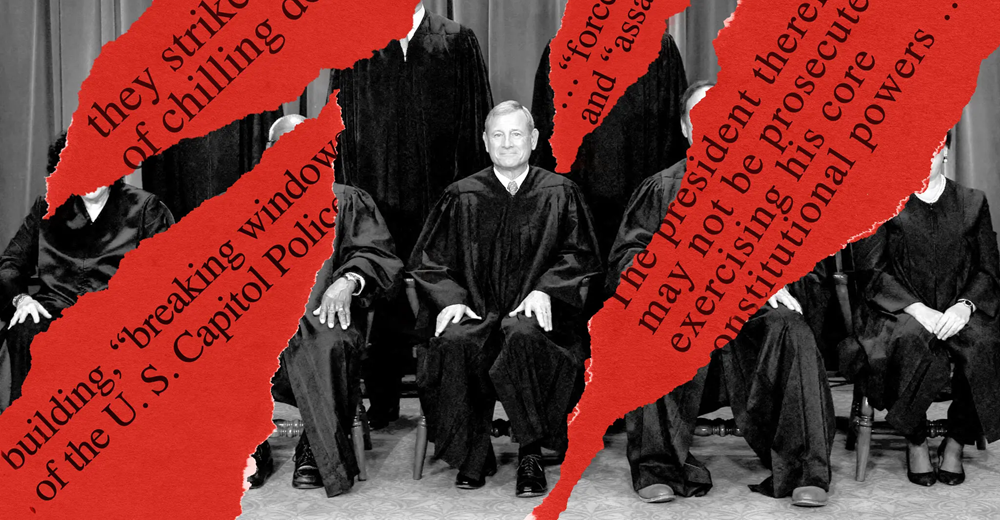A news article painting the Supreme Court as a politicized part of government in 2024 is a little like a scientific inquiry into whether water is wet (CounterSpin, 5/19/23), and it’s easy to disregard the Journal’s anger at the Times as a mixture of partisan feuding and journalistic envy.
But something else is at work: The Journal has a track record of advocating that the court operate without public scrutiny. When Politico (5/2/22) reported that a draft court decision would soon overturn Roe v. Wade, the Journal went into attack mode.
Trump-defending legal scholar Alan Dershowitz took to the Journal (10/30/22) to advocate finding out who the leaker was, saying, “Learning and disclosing the source of the leak would strengthen the high court by preventing future breaches.” In a later piece (2/1/23), Dershowitz asserted that “the argument for compelled disclosure is strong because the source didn’t seek to expose any wrongdoing by the government.”
In direct response to the Politico report, the Journal editorial board (5/3/22) called the leak “an unprecedented breach of trust, and one that must be assumed was done with malice aforethought.” It added that the response to the report was “intended to intimidate the justices and, if that doesn’t work, use abortion to change the election subject in November from Democratic policy failures.” A Journal op-ed (6/24/22) called the leak an “act of institutional sabotage.”
(Emphasis original.)

